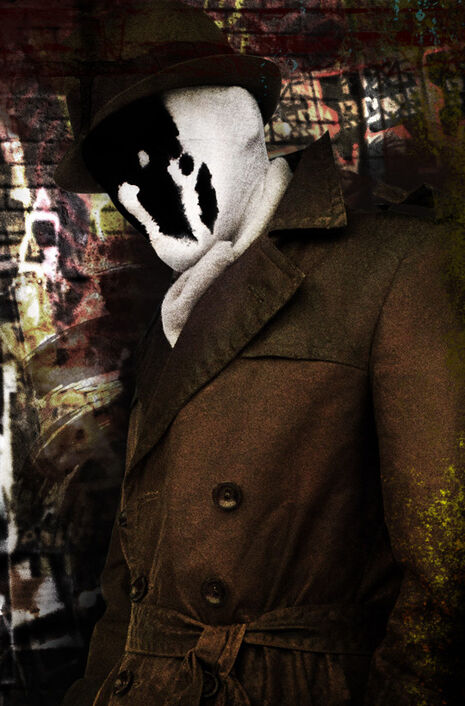Sunday, October 9, 2011
Who watches the supermen
It might seem at the first glance that the protagonist of Alan Moore's Watchmen is Dr. Manhattan, and the book's focus is exploration of what it would truly mean to be superhuman. If you look deeper, it is not quite so.
True, a great deal of the book focuses on Dr. Manhattan's origin story, current situation and growing awareness of his detachment from humanity that culminates in him leaving Earth in the end. However, there are two other characters who get nearly as much attention, and more history. They do not pain themselves over their loss of humanity like Dr. Osterman or manipulate the world like Veidt, react to Kovacs's story like Dr. Long or provide a human outlook on the events like Dreiberg, Juspeczyk and the two Bernards. These two merely frame and underlie the whole story as we see it.
Both of them are monsters.
There is more than one way to be a monster, though, and these two are as different as two psychopaths can be.
The Comedian is the extremely human monster, uninhibited, amoral, murderous, lecherous, a troglodyte with heavy weapons. He has no principles, only impulses and cunning; he is not even an anarchist, and sells out to the government so he can continue the debauchery with an official blessing. It seems that there is nothing too heinous for him to do; when the retired heroes assembled for his funeral remember his presence in their lives, they remember him raping, killing, destroying, cynically abusing everyone. His impulsive depravity hits the truly monstrous bottom when he shoots a woman pregnant with his own child without regret. And yet there are people who were his friends and mourned him.
Rorschach is the polar opposite, cold, calculating, preternaturally focused, the only feeling he cultivates is the fanatical feeling of justice. He has no impulses, only intellect and principles to uphold which he stops at nothing; Rorschach is a survivor, rather than an aggressor, but to ensure his survival and enforce his principles he commits atrocities and disregards anyone else's well-being... for as long as it serves his goals, then he simply walks away. Ultimately, his principles prove to have priority over his own survival. He had honed himself into a ruthless, efficient avenging entity, becoming almost inhuman. He's as amoral and cruel as the Comedian, except rather than simply disregarding the social convention, he follows a moral of his own design which is incompatible with anyone else's. And yet there are people who were his friends and mourned him, too.
The two human monsters, one sunk to the monstrous state by following his impulses, the other elevated to the same monstrous state by following his ideals, are the two extremes of human condition in the book. Every character has a little of the Comedian in them. Every character has a little of Rorschach in them. The Rorschach-like detachment of Dr. Manhattan mingles with things he did in Vietnam on the Comedian's side. Ozymandias's Rorschach-like idealism pushes him to calculate odds at which killing millions to save billions becomes acceptable, but like the Comedian, he destroys witnesses in mass murder and kills people with his own hands. We all have potential to become the Comedian. We all have potential to become Rorschach.
The Comedian dies when he discovers the true cynical monstrousness of organized atrocity that even his decades-cultivated cynicism could not bear, and it finally breaks him like any human who saw too much injustice. Rorschach dies when he puts his principle of justice and truth above his own survival, refusing to lie even to save himself and tell the truth later, like any human who would rather die than face a lifetime of knowing they betrayed their ideals even for an instant.Their pursuits of debauchery and ideal, running in the opposite directions, still brought them together in death. The two monsters die human deaths, never having escaped the humanity that caught up with them in the end.
Their symmetrical deaths, the Comedian's at the beginning and Rorschach's at the end, frame the book and the human perspective on what it means to try to be superhuman.
Subscribe to:
Post Comments (Atom)



No comments:
Post a Comment